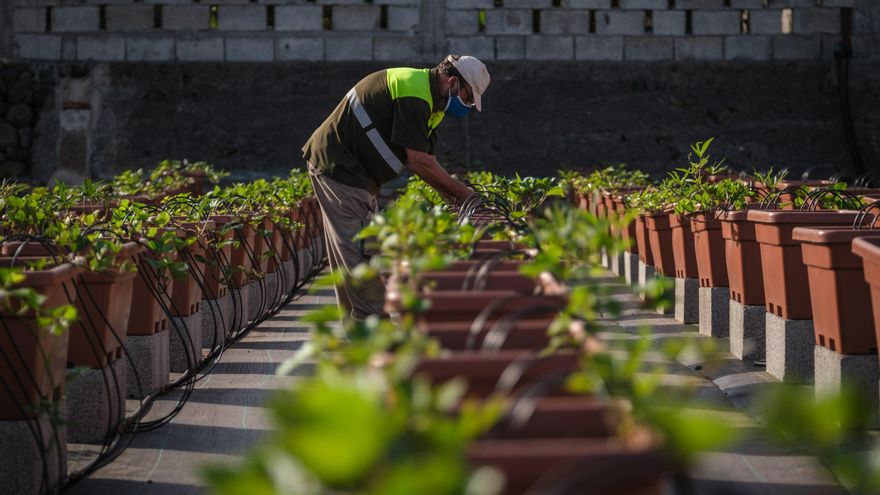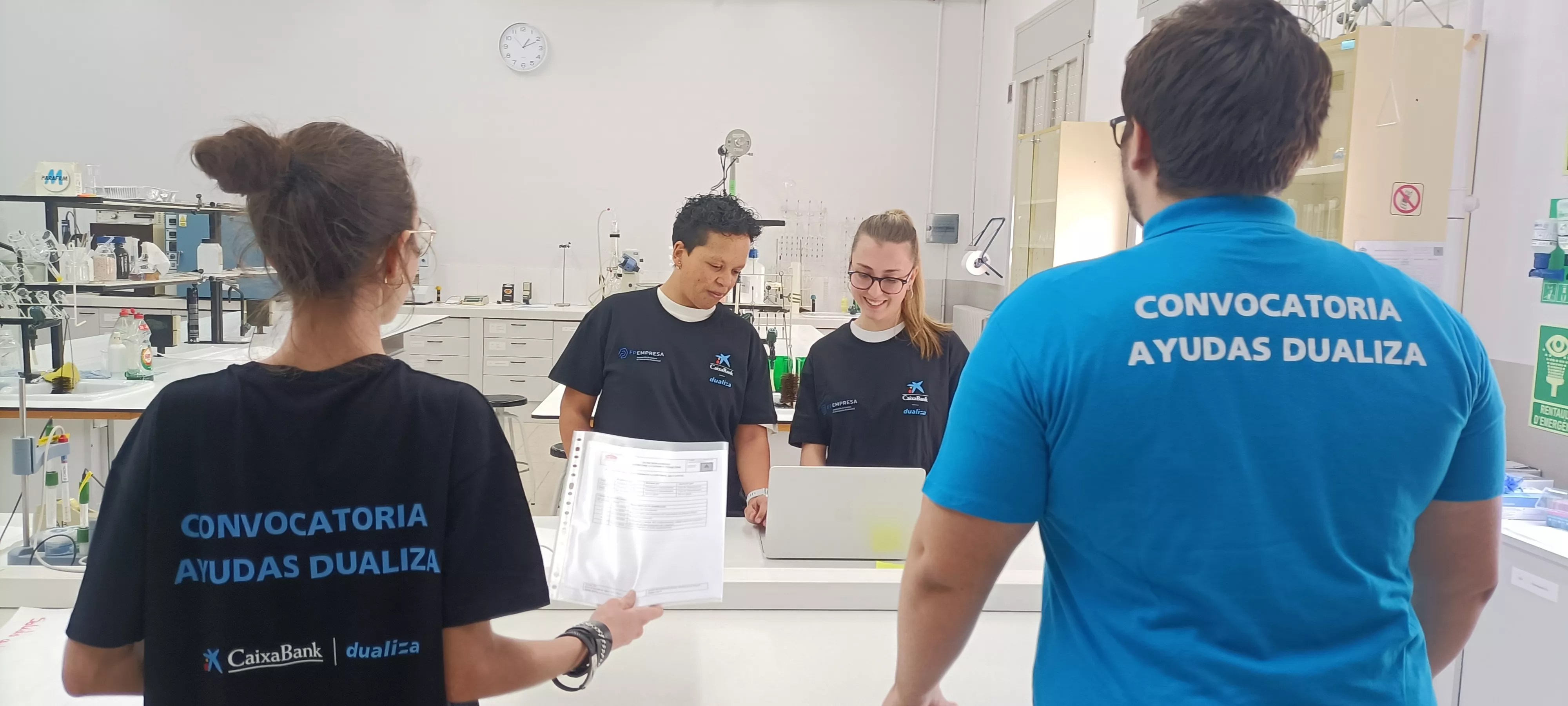
The farm is accessed by the La Barranquera road or by a street with a peculiar name: Las Ánimas Lomarque. It is a narrow road, with pavement in very bad condition and that runs between greenhouses. After thinking several times that one was lost, a sign on a curve ends up providing a bit of relief: Finca La Mosca. It is a large enclosure with a gravel car park at the top. This is the meeting point chosen last week by the Minister of Agriculture, Javier Parrilla, and a group of the twelve members of the Ecological Transition Employment Project (PETE) 2020, who have worked in recent months on the aforementioned initiative.
This newspaper He accompanied them during an appointment in which they took stock of the experience and in which the good work carried out was also highlighted. Specifically, the result is located in some orchards located in the lower part of the Finca, a little further north than La Barranquera, but still in line with the coast of Valle de Guerra. The first image is that of some perfectly aligned pots, placed on a black mesh and with a drip irrigation system. Each of them rests on larger than normal concrete blocks. Everything there has its explanation.
A technician from the Tenerife Agricultural Biodiversity Conservation Center (Ccbat) details that in one of the two spaces used for this project cultivation was carried out on July 28, while in the other it was carried out on August 26. The growth of the former is already remarkable. «We have more than 100 entries on the farm», points in reference to each of the samples that are collected from a specific farmer in a specific area. All this is recorded, as if each one of them had its own “passport” with the name and surname of the person who gave it, their age, the place … “There are varieties obtained in all Tenerife and in other islands “, they specify from the Ccbat, and indicate that most of them are ancient varieties, while highlighting the biodiversity that the rural parks of Anaga and Teno have.
The separation of the pots is no accident. Neither does the mesh that covers the floor. As they comment, with the first of these decisions it was sought not to produce mixtures between pots, as well as that, visually, the difference between the varieties could be observed and, with this, make the place accessible. For its part, the mesh is a formula to prevent the species from falling to the ground, root and colonize on the farm. In total, according to the figures provided, the two gardens house about 100 entries and 30 varieties.
Until reaching the present moment, a previous path was necessary. The work began with the removal and smoothing of the land, the opening of ditches, the placement of the pit on the edges … An important concept in the line of action followed was that of “optimization of work”. The action has required several months and in it The participants of the employment plan played a fundamental role.
“A great result”
Both those responsible for the work on the farm and the insular councilor for Agriculture, Javier Parrilla, show their satisfaction with the involvement of the twelve people who participated. «I am quite happy; there has been a great result ”, says the socialist politician. “It has been a meticulous, meticulous work …”, he celebrates, before highlighting what initiatives like this mean for this tuber with history: “With this we can, in quotation marks, save types of sweet potatoes, products that we could qualify as delicatessen”. In addition, it highlights the benefits of sweet potatoes and the demand it has.
According to the data provided by the island institution, the Ecological Transition Employment Project (PETE) 2020 has been co-financed by the Cabildo, through the Employment area; the Canary Islands Government, and the Public State Employment Service, through the Canary Islands Comprehensive Employment Plan, which, in addition, carries out other activities on the different farms attached to the Cabildo and which are focused on the rational management of water, “Thus improving the irrigation facilities of the collections of plant material dependent on the Center for the Conservation of Agricultural Biodiversity of Tenerife, located in Puerto de la Cruz and which is responsible for the recovery of local varieties on the Island.”
Javier Parrilla, in the press release that the Cabildo had sent about the action, affirms that “the initiative improves the benefits of a food of great importance in our gastronomy and traditional pastries.” And adds: “We must preserve the diversity of this product that has been with us since the middle of the 16th century”. Already in the visit made this week, the Tenerife counselor also stopped in the recovery work that has been undertaken at the La Mosca Farm, and which stands out as “one of the essential elements to maintain the island’s agricultural biodiversity.” The company Cultivos y Tecnología Agraria de Tenerife Sociedad Anónima (Cultesa) has offices there and tests are also being carried out in this room, he clarifies.
Collection security
“In total, the collection of the Finca La Mosca will be able to house 135 entries of plant material of this crop, thus having a backup copy of the collection located in the Finca Boquín (Icod de los Vinos)”, states the note from the Tenerife Council. «Also, with the actions carried out this year the security and integrity of the collection has been increased, optimizing the resources available for the maintenance and conservation of the crop and facilitating the necessary tasks to do so, “they add from the institution.
Another of the striking aspects of the work that the Ccbat carries out around the archipelago’s sweet potatoes is that it gives the reproduced material to farmers who request it on its website; that yes, according to the existing availability. «In each pot, three sweet potato branches were planted, collected from the Finca’s own collection, located in the adjacent garden “, specifies the insular institution.
Regarding the PETE Tenerife 2020, it should be noted that the Cabildo has enabled 150 jobs related to the fight against climate change and the just ecological transition, in an initiative co-financed by the Integral Employment Plan of the Canary Islands (PIEC). «This general program has a budget of 1,762,790 euros, of which 1,603,179 are provided by the Canarian Employment Service and 159,611 correspond to the Cabildo de Tenerife ”, they point out about the action taken.
















